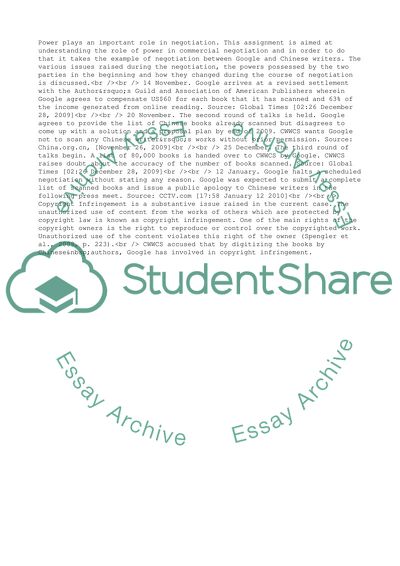Cite this document
(The Negotiation between Google and Chinese Writers Case Study - 1, n.d.)
The Negotiation between Google and Chinese Writers Case Study - 1. Retrieved from https://studentshare.org/business/1740092-business-sucess-through-negotiation
The Negotiation between Google and Chinese Writers Case Study - 1. Retrieved from https://studentshare.org/business/1740092-business-sucess-through-negotiation
(The Negotiation Between Google and Chinese Writers Case Study - 1)
The Negotiation Between Google and Chinese Writers Case Study - 1. https://studentshare.org/business/1740092-business-sucess-through-negotiation.
The Negotiation Between Google and Chinese Writers Case Study - 1. https://studentshare.org/business/1740092-business-sucess-through-negotiation.
“The Negotiation Between Google and Chinese Writers Case Study - 1”. https://studentshare.org/business/1740092-business-sucess-through-negotiation.


